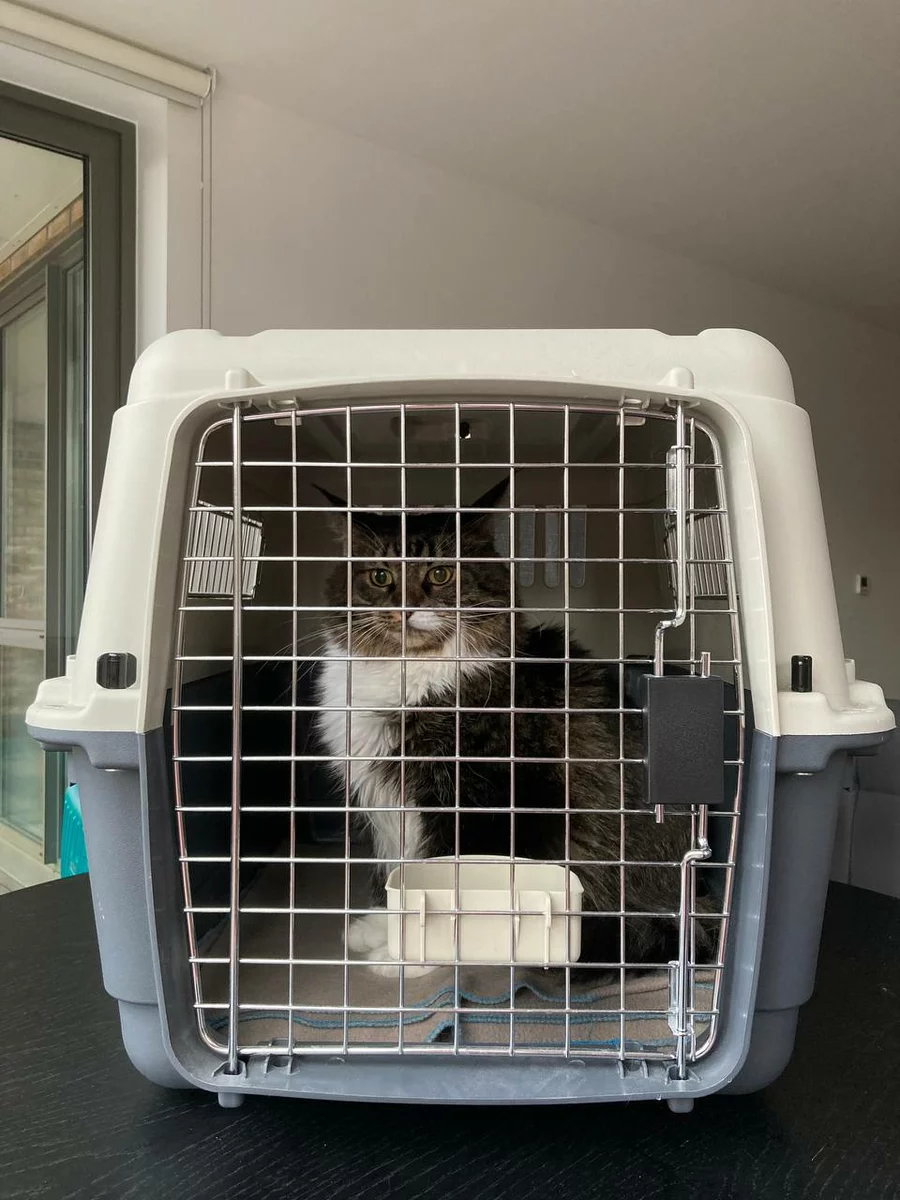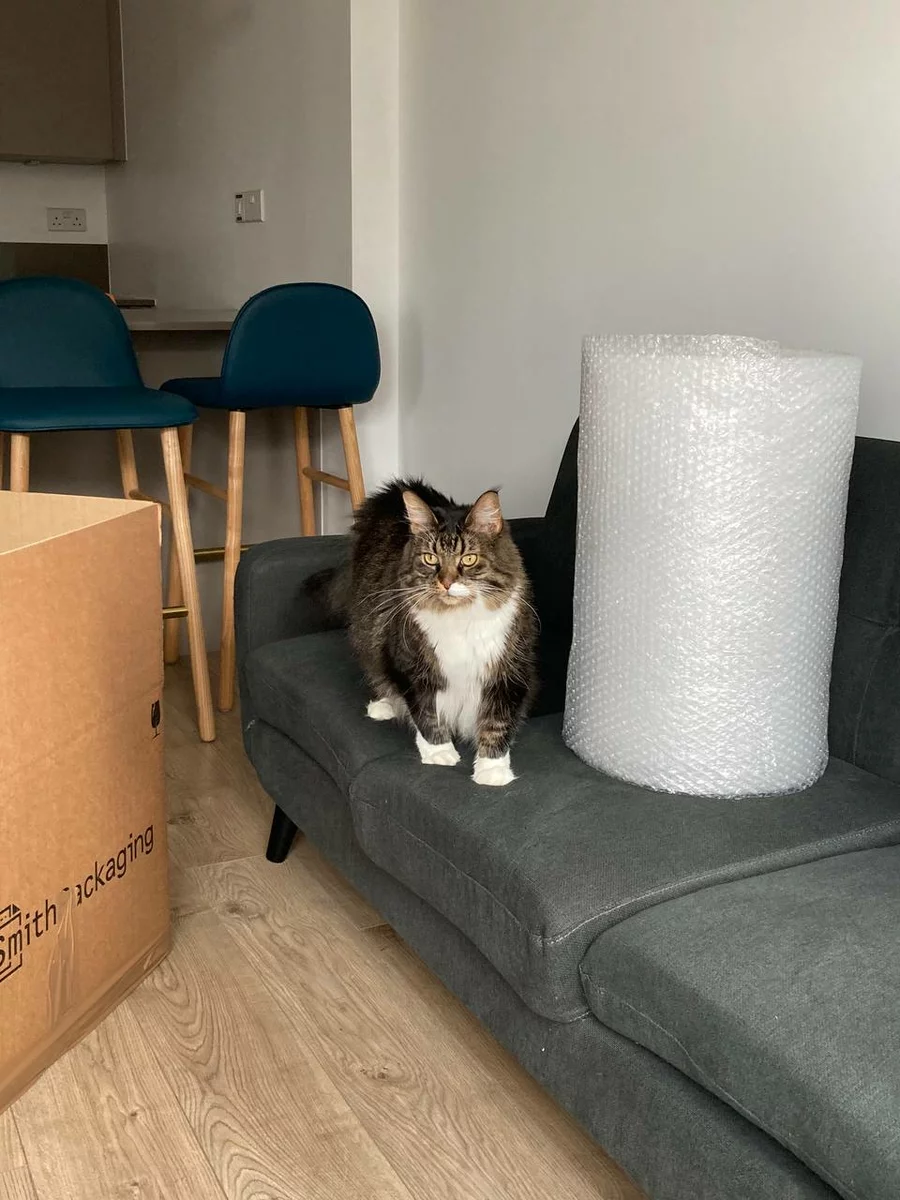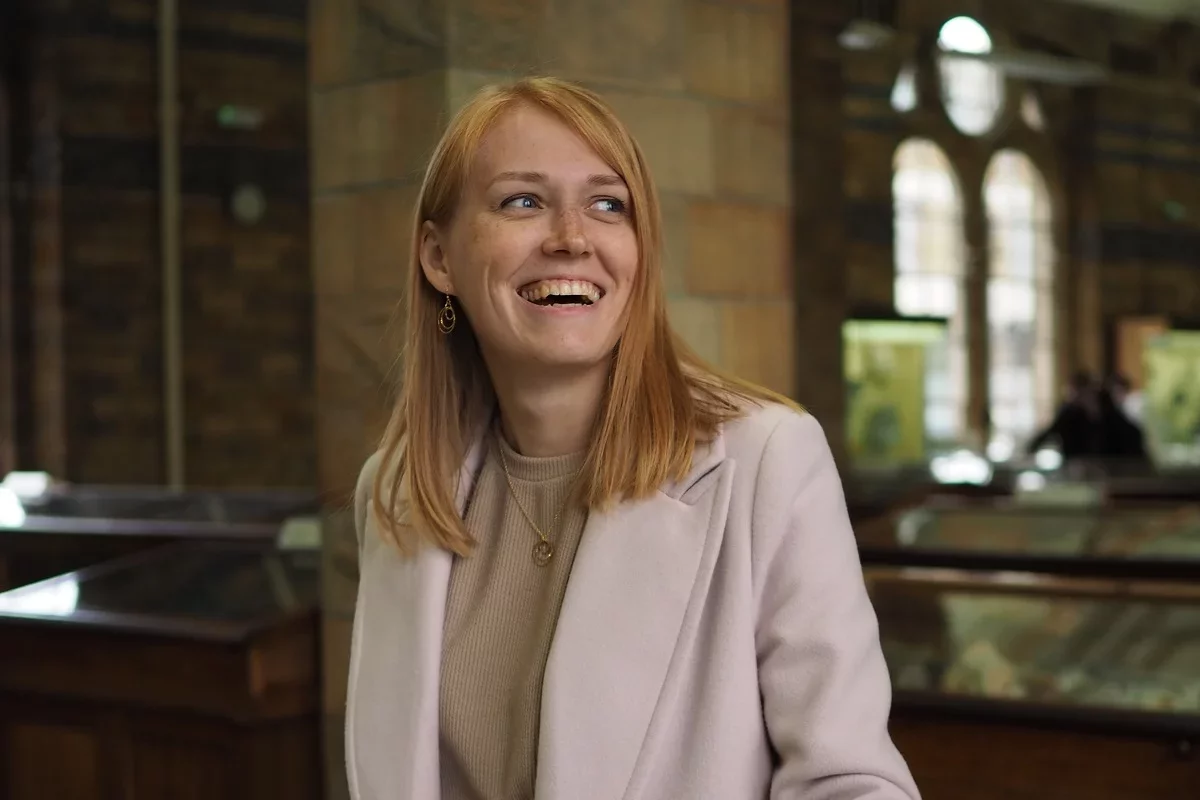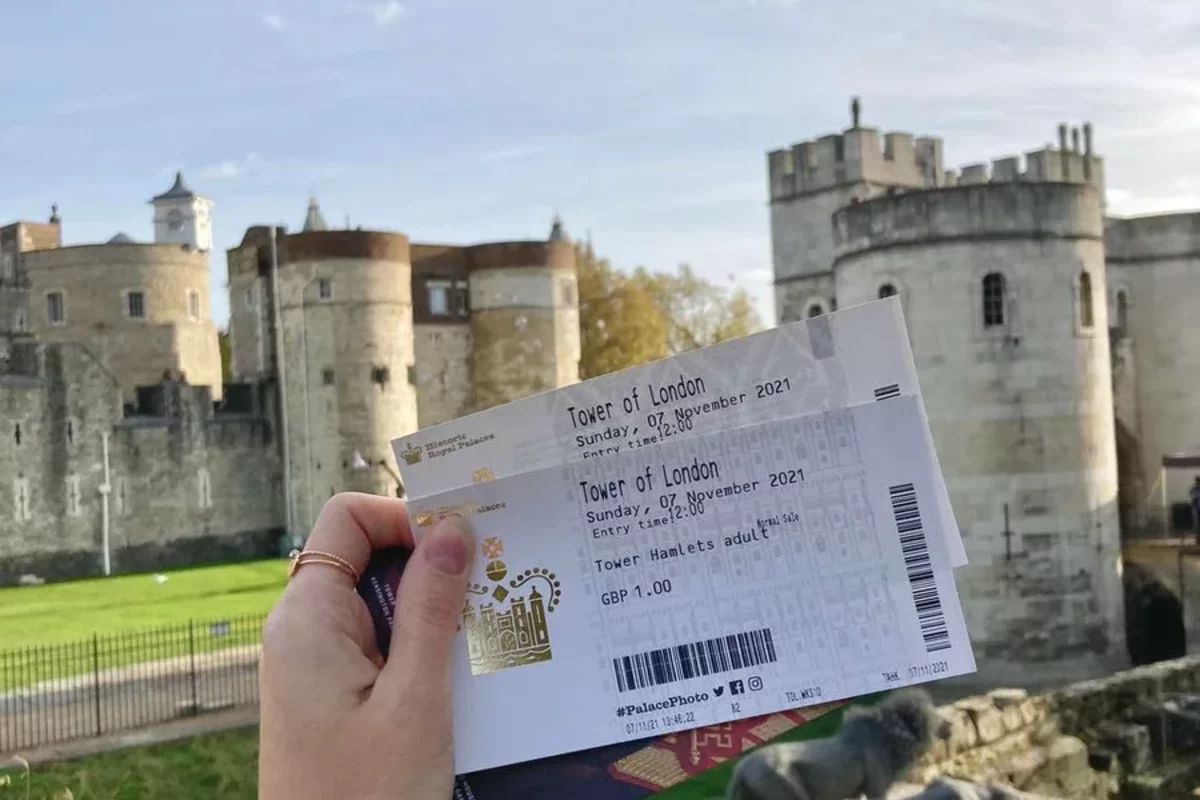
«It’s incredibly expensive to rent an apartment in London, but it’s not the biggest problem.» Personal experience: how to move to the UK and what to expect
Planning to start a new life and move to the UK? Everything is possible, if you have the right information. The best source of such knowledge is the personal experience of someone who has already been down this road. We discovered such a person and found out what you should know about when planning an immigration to the UK, what difficulties you will face and how much it will cost to live in this country.
About Moving to Britain with a Cat
There are always a lot of questions and obstacles along the way during a move — and that’s normal. Our material is designed to make the process of your immigration to the UK easier and less intimidating. Rina Kurochkina, who moved to London with her husband 1.5 years ago, shared her personal experience with us. She told us how she went through the process of relocation, what the cost of local life and prices for rental property are, as well as how you can prepare for a new stage in your life.
 — My name is Rina. I’m 27 years old at the moment. I was born in Perm, and at the age of 15 I moved to St. Petersburg. There I graduated from gymnasium and university. I worked mostly in HR. At first I was a recruiter, then pretty quickly I moved on to the position of Training Manager. I literally trained people to do their jobs quickly, efficiently and without burnout.
— My name is Rina. I’m 27 years old at the moment. I was born in Perm, and at the age of 15 I moved to St. Petersburg. There I graduated from gymnasium and university. I worked mostly in HR. At first I was a recruiter, then pretty quickly I moved on to the position of Training Manager. I literally trained people to do their jobs quickly, efficiently and without burnout.
Even before I relocated, I had time to live in America through Work and Travel and a couple of months in Germany. It was very interesting to see how people live in different countries. It’s fascinating to experience something unfamiliar to you, when for someone else it’s commonplace.
My husband and I met in St. Petersburg, and at that time we had already formed a desire to move to live abroad. And since we could not simply relocate to another country, we looked at the places from which my husband was receiving job offers. After all the searches and interviews, we had in our hands two options: Stockholm and London. The offers were about equal, so we decided to look at these countries first.
Life in London turned out to be more expensive, but it was more varied: there are more bars, events, concerts. The climate also played a role: we wanted to move to a warmer place. The main factor was the language: in Sweden we would have been forced to learn the local language, so we thought (and we were right) that with a good knowledge of English in London it would be easier for us to adapt. As a result, as you have already guessed, our choice was Great Britain.
«It’s easier and cheaper to move a baby than a cat»
— We moved to London 1.5 years ago. The transition fell at a Covid time and took about a year. Since Britain had not yet left the EU by then, it was a little easier for us.
In general, the plan for the relocation was something like this: apply for a job and get a job offer — with an offer go for visas — get visas — buy tickets and fly away.
In the process of obtaining a work visa to the UK, the most important documents are a passport, a certificate of employment or study, and an invitation from a British company. A list of all the necessary documents is publicly available on the website of the British Consulate. The validity of long-term visas is initially 3 years, after which the visa can be extended.
Another important thing to keep in mind: when applying for a visa you need to do, among other things, a test for tuberculosis. And you can not come to the embassy with any test for tuberculosis — it is necessary to pass it in those places that are approved by the Kingdom, and it is for a fee. It cost us 13 thousand Russian rubles for two people. If there is a suspicion of tuberculosis, they can prescribe additional tests for the disease. This can all last for 6 months and requires periodic tests (at personal expense, of course). We were lucky that we didn’t have to go through that.
But the biggest problem for us was the cat, and the cat again. It's easier and cheaper to take a child out than an animal. It's even harder now because of Brexit. I've heard that you have to prepare for moving out with a pet and get a pet blood test (3 months apart). In short, there are so many requirements for bringing animals into Britain and, unfortunately, things change very quickly in that environment.
So, while we were preparing to transport the cat (doing chipping, rabies vaccinations, flee worming and other parasites) flight price went up from about 7 500 Russian rubles to 120,000 rubles. This was due to the fact that at that time was carried only Aeroflot (British Airways just laughed into my phone). Aeroflot took a third-party carrier so if there were problems with transporting the animals, they would go to an intermediary. In the end, everything worked out fine because the intermediary contacted the acceptance of the animal on the British side for us and handled all the paperwork himself.
UPD. Moving with pets is a separate topic that requires special preparation. As already mentioned, the rules for bringing pets into the UK have become stricter since Brexit. In addition to mandatory chipping and vaccinations, it is now necessary to take blood tests at certain intervals, as well as to comply with quarantine requirements, if applicable. When planning a move with a cat or dog, it is important to consult a veterinarian in advance and thoroughly research the current requirements on official websites.
In addition, when looking for housing with pets, it is worth considering that not all landlords are willing to accept tenants with animals. Sometimes it becomes a serious obstacle, so it is better to have confirmation of good behavior of the pet and recommendations from previous landlords, if any.



«If the embassy has doubts about the sincerity of your relationships, the visa may be denied»
— The grounds for a foreigner to move to the UK can vary. Some come with a student visa, some with a work visa, some with an investor visa. We came with my husband’s work visa. The category of my visa is Tier 2, which means my visa depends on my husband’s visa. With it I have the right to work in the UK: I can’t take a very important positions (for example, a doctor’s position), but most jobs are available to me.
By the way, if your husband or wife is moving under a Tier 2 visa, you may need proof of your relationships. In our case, it was a certificate of marriage and an additional file with photos of different years from many places. The principle is this: if the embassy has doubts about the sincerity of your relationships, then the visa may be denied. On average, a strong relationship should last more than 2 years. Even better, if you are already married, but the duration is important in any case. My husband and I know a couple of stories where the wife stayed in the country for another six months after the husband moved out. All because they did not provide the embassy with additional confirmation that things are serious.
About Renting an Apartment
— Regarding the cost of living in the UK, I can say that everything here is incredibly expensive. In Covid, prices have fallen, but now inflation has increased several times over, which has greatly affected both store prices and rent/buy prices.
Here are the specific figures for household expenses: electricity costs about $120, water — $35, internet — $40. There’s also what’s called council tax, which is a housing tax levied by local authorities across the UK. On our current apartment it is $120, on the last one it was about $180. The cost depends on the neighborhood, the EPC rating of the building (that’s kind of the resource efficiency of the house), and the various company offerings. In terms of products, it really depends on your budget and preferences, so it’s hard for me to say anything definitive here.
Renting an apartment here is very, VERY expensive. For example, a 2-bedroom apartment not in the center (2-4 zones of London) will cost $2150-2500 on average. You can find both more and less. That’s without utilities and other bills and taxes. It is clear that the farther away from big cities, the cheaper. True, it is worth saying that salaries in Britain are also different.



Personally, my husband and I tried to rent an apartment in London two times already. We didn’t use the services of a realtor — we looked for it by ourselves. Here’s what the process looks like:
- You go to housing search sites.
- You enter your parameters (price, number of bedrooms and/or bathrooms, location, etc.).
- You choose, send feedback or call right away.
- Next, if the agent answers ( as they often do not answer), you discuss the nuances. They frequently ask about the approximate family income, who you work for, who exactly will live in the apartment/house/room. You can ask any questions you want, too. It was more difficult for us, since we have a cat — it is problematic to search with animals. We asked at every conversation if we were a good fit, given the presence of a cat. Sometimes when viewing it turned out that no, although before we were told the opposite. But here the human factor plays more of a role.
- If everyone is satisfied, you make an appointment to see the apartment. It is often the case that they show you the apartment you have chosen on the website and a few others in order not to lose the client. That is why it is better to plan for at least one hour to see the apartment. But this applies if there are options in the area, of course.
- If you like the apartment — you make an offer. The agent himself will send you a table, which you just need to fill out. There you specify the conditions from your side and the amount you are willing to pay. The price in the ad is nominal, but if you indicate too little, you may not rent. Among the conditions may be anything. For example, to repaint the walls or change the mattress, allow living with a cat, etc.
- You go through a check. At this stage, agents check your papers, and they may also call your former tenants to see if you are a good tenant. Some also check your credit score, but if you’ve just moved in, it’s best to avoid that. The more checks, the lower your credit score becomes.
- You receive, adjust, sign the contract. You pay the deposit. If it says «no smoking on the balcony» you had better not do that. The deposit is usually taken by an outside company, and it is kept with them until the end of the lease. Usually there is a separate agreement with them, too. The amount of the deposit is, on average, 5 weeks of rent. Unfortunately, with some landlords you have to «fight» for the return of the deposit, because they are trying to make repairs at your expense. But you can never guess here — sometimes you can see it in agency reviews, for example. That’s what you need a third-party organization with a deposit, which will assess the reality of the damage, to deal with such moments.
- If all is well, you pay everything and move in. The keys will be issued on the first day of rent. Once every six months (or as stated in the contract), an employee of the agency may come and check if everything is okay with the apartment.
- Deadlines for notification of departure (as well as everything else that is basically necessary) are prescribed in the contract. Usually you have to give at least two months’ notice.
A side note. Residents of other countries can buy property in England without any restrictions. According to the latest figures, foreigners own a quarter of a million properties in this country. The most popular location — London.
According to Halifax, home prices in the UK have risen from a total of $184,000 in early 2010 to $324,000 in June 2022. It is important to remember that additional taxes and fees when buying a home in England can be at 15% or more of the value of the object. The most significant amount of these costs will be the stamp duty, which is paid once at the time of the transaction.



«If you keep your hand on the pulse, you can find a lot of activities that you won’t pay a penny for»
— When we moved here, — Rina continues, — a lot of things struck us. For example, I didn’t expect the Tower Bridge to still be drawn. We were also impressed by the following moments:
- Difficulties with ordering food
Samokat and Yandex.Lavka have spoiled us a lot: we want free delivery, and that in 15 minutes at the most, and gifts with promotions to the order. In London, you can use local grocery chains to order groceries, but they only deliver in 5-14 days. On the plus side, at least there’s Amazon Fresh, Ocado and Waitrose, which will deliver your order the next day. But in general, it’s easier to go to the store.
- Absence of curtains
Actually, I did not expect that in today’s world, personal space is not valued so much. On the first floor you can easily find out what people do, from reading books to, you understand what I mean... By the way, here we should mention the famous double-decker bus. You go along the bus and enjoy the sights of London... but only until discover that no one uses the curtains on the second-floor windows overlooking the road. Although they had better use them.
- Right-hand drive
Since childhood, parents teach us to look left and then right when crossing the street. In Britain, it’s the other way around. Also, you have to look both ways when crossing the special lane for cyclists. In the center, by the way, they write directly on the road which way to look, but in more remote areas you have to strain your brain.
- A very sporty nation
All the time people run, exercise on sports grounds, often with apartments (especially new ones) offer an exercise room or pool.
In general, I have already managed to like the atmosphere here, and I could talk about aspects of London life endlessly. For example, the locals are very polite: if you don't understand something, people will usually calmly repeat it several times, teach you or show you. By comparison, I personally encountered a different attitude in America. But this is just my experience.
I also like the weather in England. Usually it’s not too cold (winter temperatures don’t drop below zero), and not too hot (this year will be an exception, we even had +40). But more often in summer it’s around +25.
I incredibly like the fact that there are so many free activities all over the country. For example, at the National Gallery in London, you can see Caravaggio and Van Gogh for free. As well as an automated tyrannosaurus (it really moves!) and a whale skeleton at the Natural History Museum. If you keep your hand on the pulse, you can find a bunch of lectures, events, and exhibitions for which you won’t pay a penny. Also, artists from all over the world come to Britain with concerts and performances. Prices, of course, are not always pleased, but you can see almost any icon.
«A lot of people think there is the same thing waiting for them as in tourism, and that’s not the case at all»
— Of course, there are pros and cons everywhere. For example, you can’t rely on the local transport system because of the constant strikes on all subway lines: many people can’t get to work or do business. Fortunately, at least they are warned about them in advance.
From my observations (as I said, I lived in America and Germany for a short time), there are problems with the health care system everywhere. If we take England specifically, it’s a concern to make an appointment with a general physician. Last time, the closest appointment was in 2.5 weeks from the day I called. On the plus side, if you are dying, a helicopter can come for you. I’ve seen a couple of times a helicopter land in parks to provide emergency care. Another of the downsides is that everything is very expensive. From fares (a bus ride alone will cost £1.65), to dentistry and vet services.
As practice shows, the biggest problem when moving is romanticization. A lot of people think that the same thing is waiting for them as in tourism, but it is not true at all. There are people here, too, with complexities, peculiarities, etc. Read a couple of books on the psychology of moving, hire yourself an adaptation psychologist, go to chat on Telegram and Facebook to see how people live and what issues they face. Make a plan for communication with long-distance friends (I'm not kidding, very quickly you can stop communicating). In short, take care of yourself before you move. It will be hard, but it gets easier over time.
Want to buy real estate in the UK? Visit the «Property in United Kingdom» section and choose the option that is right for you.
Author
I am responsible for editorial work. I write expert interviews and guides.





















